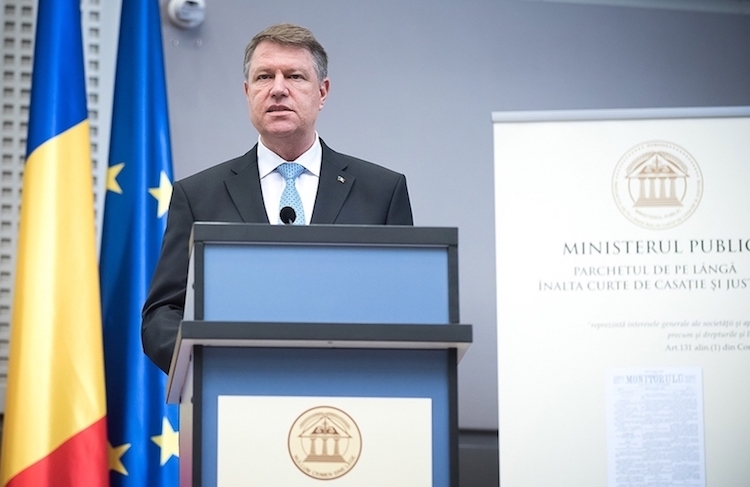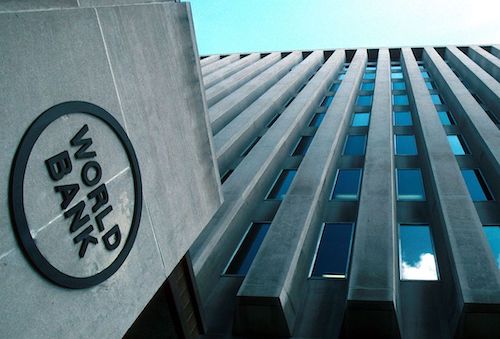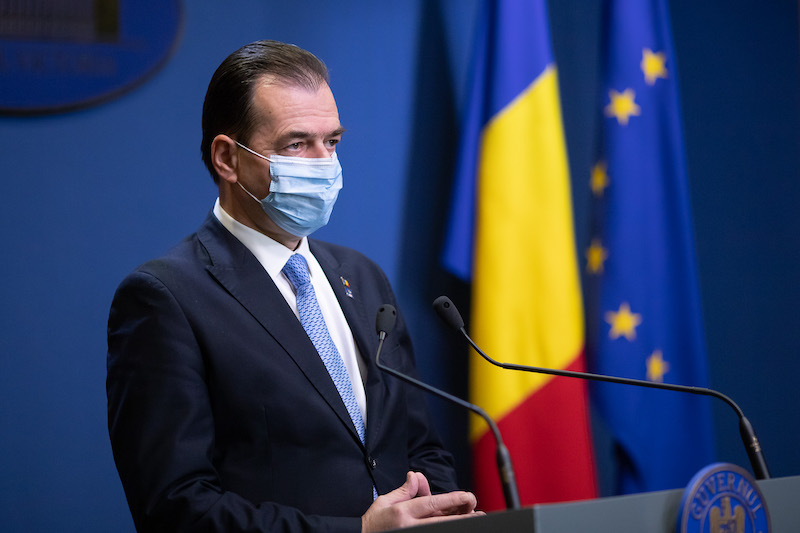President Iohannis: Political declaration of Parliament - a disturbing signal, could be considered a pressure form

President Klaus Iohannis asserts that the political Declaration adopted on Wednesday by the Parliament is a disturbing signal regarding the the outlook the Legislative has got upon the way it relates to the state's authorities and bodies, as well as to the civil society.
"The political declaration adopted today by the Parliament of Romania - whose detailed analysis from the judicial point of view questions the rigor of the concepts and arguments -, although it claims the role of the Parliament in the institutional architecture of the Romanian state, in fact it is a worrisome signal on the outlook the Parliament has upon the way it relates to the other authorities and institutions of the state, as well as to the civil society," says the president, according to a release by the Presidential Administration.
According to the source, the Parliament's political Declaration is harming the loyal cooperation principle among the state's institutions, grounded in the jurisprudence of the constitutional litigation court, considering that it has been used "as pretext a piece of legislation of the Government adopted in absentia of any legislative delegation from the Parliament and strongly contested by the civil society" and a decision of the Constitutional Court whose motivation is unknown yet, was invoked.
"The adequacy of the Parliament to the reality of the contemporary Romanian society involves more than the simple affirmation of the fact that "the legislative authority is unique and indivisible", that it "benefits from an exclusive right to hold the Government to account," that it is "the only constitutional representative of the entire society" or that "the structured and legal opinion of the Romanian society is expressed legitimately and exclusively by the Parliament only" or that "the Parliament ensures the constitutional link between the president and society." The deterioration of the public image of the Parliament and the decrease of the citizens' confidence in the authority that today reaffirms "its political supremacy toward all the other public bodies" will not find a solution through the transfer of responsibility upon Romania's president, the Superior Council of Magistracy or other "agencies of the state of juridical nature or keeping to the national security sphere," or ultimately upon the citizens who dare to freely express themselves against some actions that endanger the rule of law and values of democracy. The impression of the Parliament that it is "a body reduced to the condition of a spectator of some political decisions" could be changed by assuming certain authentic, transparent debates, through a responsible, predictable legislative act in the society's general interest, through an efficient control upon the Executive in its entirety, and not only limited to questions to the members of the Government," says the release.
The Presidential Administration says that the standpoints voiced by Romania's President are far from being "mere opinions" much less "private or partial", but that they do materialise into actions and acts meant to realise the representative role of the president.
"Romania's Constitution sets that Romania's President is directly elected by the citizens. He has legitimacy and representativeness even to those of the Parliament, therefore Romania's President does not become through effect of Constitution exterior to the society, on the contrary when manifesting, the president of Romania expresses interests of the society. As the Constitutional Court has found, an eloquent expression of the fact that the president of Romania must have an active role and that his presence in the political life cannot be but a symbolic or protocolic exercise results from the dispositions of Art. 80 of the Constitution which sanctions the role of the head of the state to watch the observance of the Constitution and the good functioning of the public authorities, exercising his job as mediator among the state powers between the state and the society," the release adds.
The Presidential Administration believes that the Declaration adopted by the Legislative could be considered a form of pressure.
"The fundamental law dedicated an essential principle for the behavior of all authorities and all citizens, namely that "nobody is above the law." This means that, on the one hand, the public authorities, the ones nationally represented included - Parliament and President of Romania - are held to observe the current legal framework. On the other hand, this means that no public authority can limit the prerogatives of the others. To the extent that "the opinions of the Romanian President, of the CSM and the representatives of the Public Ministry" are considered "unconstitutional and unacceptable," the political Declaration adopted today by the Parliament could be considered a form of pressure. Thus, the notification of the Constitutional Court by the President of Romania or the CSM could become debatable, and the investigation and judging of the corruption deeds would transform into contestable actions. But, the Constitutional Court should seriously reflect every time it would have to solve a cause the Parliament would be also involved, since the latter assesses the constitutionality of the actions and decisions of other public institutions," says the source.
According to the release, president Klaus Iohannis noted the political Declaration adopted by the Parliament and will continue to exercise his constitutional attributions.
"Romania's Constitution has built a system within which the institutional autonomy is balanced by the mutual collaboration and the loyal cooperation of the fundamental bodies of the state. Noting the political Declaration adopted by the Parliament, Romania's President will continue to exercise all of his constitutional attribution in the benefit of the Romanian people, the single keeper of the national sovereignty," the release adds.






